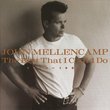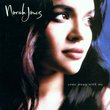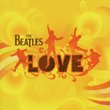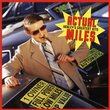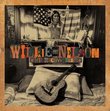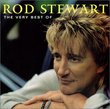| All Artists: Bobby Vee Title: The Legendary Masters Series Members Wishing: 2 Total Copies: 0 Label: Capitol Release Date: 3/16/1990 Genres: Pop, Rock, Broadway & Vocalists Styles: Oldies, Teen Pop, Vocal Pop, Oldies & Retro Number of Discs: 1 SwapaCD Credits: 1 UPCs: 077779277421, 0077779277452, 077779277452, 762185126448 |
Search - Bobby Vee :: The Legendary Masters Series
 | Bobby Vee The Legendary Masters Series Genres: Pop, Rock, Broadway & Vocalists
|
Larger Image |
CD DetailsSimilarly Requested CDs
|
CD ReviewsCardigans, Brylcreem and Letter Jackets John A. Kuczma | Marietta, GA USA | 06/05/2000 (4 out of 5 stars) "If any member of the pop music set was ever the perfect "boy next door," it had to be Bobby Vee. A toned-down Buddy Holly with a squeaky-clean image, he was the music industry's response to a rock & roll scene gone mad.Unfortunately, too many people let the image get in the way of the music. One of the first genuine "Teen Idols" of the pop era, above all else, Bobby Vee could sing! From 1960 to 1968 he cracked the Top 40 fourteen times, including six top-ten hits.Bobby hit his peak in 1961 with "Take Good Care of My Baby", his only number 1, followed immediately by "Run to Him," his only number 2. He reached the number 3 slot in late 1962 with "The Night has a Thousand Eyes," his only hit with a slightly nasty twinge to it. By the time he hit the top ten again, it was 1968 and "Come Back When You Grow Up," a forlorn but beautiful ballad, was really his swan song.While many of his songs sound almost formulaic, Bobby brings an energy and a sincerity to his music that breathes life into predictable lyrics and puts jump into sacharine sweet melodies. There is no doubt that his teenage angst sound is somewhat dated, but the selections on this album are pleasant listening and bring back a flood of memories of the early and mid-60s.As with any collection that nears anthology level, this 26 track offering includes a few weaker cuts among the hits. However, EMI did an excellent job of mastering, using all original tracks, and the sound is bright and clean. From the wide-eyed questioning of "Devil or Angel" to the exuberance of "Rubber Ball", Bobby Vee - The Legendary Masters Series, is an enjoyable visit to the days of malt shops, bobby sox and colgate smiles, a musical breath of fresh air." Comprehensive cindy harvey | 05/12/2000 (5 out of 5 stars) "Bobby Vee was the voice of choice for a lot of the Brill Building songwiters. Songs like "Run To Him", "The Night Has A Thousnad Eyes" and "Take Good Care Of My Baby" all came from the pens of writers such as Barry Mann, Carol King and Neal Sedaka.This is classic stuff. This is from the era that followed Elvis but was efore The Beatles. The era that many claim Rock and Roll died. I don't know if you can consider any of these tracks Rock and Roll here, but they are great POP music. Classics in their own right. Many have become standards.Bobby Vee started out as a Buddy Holly sound alike and developed into a mature singer songwriter himself, somewhat in the folk vein.His best selling hit of all time, "Come Back When You Grow Up" is here in a clean stereo mix, and as always, Liberty records has thrown in a fair sampling of rarities, album cuts and B-sides.Other artist worth searching out in the "Legendary Masters" series are Jay & The Americans, The Lettermen, The Ventures and Jan & Dean.Very listenable, sometimes danceable, always enjoyable- this set is awesome." Golly Gee, It's Bobby Vee! Mike King | Taunton, MA United States | 01/31/2004 (5 out of 5 stars) "Not only did Bobby Vee's vocals enhance any song he was given to record, he was also a talented songwriter. The first song on this collection, "Suzie Baby," was written by Robert Velline (Bobby Vee's real name) and released in 1959. "One Last Kiss," a tongue in cheek song from Bye Bye Birdie, was transformed into a great love song by Bobby's straightforward rendition. "Devil Or Angel" was Bobby's first hit song, charting at #6 in 1960. "Rubber Ball" (also #6 in 1960), with its bouncy backing vocals, would have sounded like a novelty song with a less talented singer. Buddy Holly was a big influence on Bobby Vee's vocals, so it's no surprise that he sounds exactly like Buddy on the song "Everyday." Bobby's rendition of the Goffin/King composition, "Take Good Care Of My Baby," was his only #1 song, reaching that peak on 8/21/61. It was soon followed by "Run To Him," which hit #2 on 11/20/61. "The Night Has A Thousand Eyes" (#3 in 1962) is much more upbeat than Gene Pitney's similarly themed song "Town Without Pity." The influence of the Beatles is very evident on the song "I'll Make You Mine," which was written by Bobby Vee and included in his 1964 album "The New Sound From England." The moving ballad "Come Back When You Grow Up" peaked at #3 in 1967, and is one of his best remembered songs. Bobby's medley of "My Girl/Hey Girl" was his last top forty single, peaking at #35 in 1968. It closes out this 25-song collection on a strong note. The 26th track isn't a song, but is a 1961 radio ad for Bobby Vee's then current record release."
|

 Track Listings (26) - Disc #1
Track Listings (26) - Disc #1